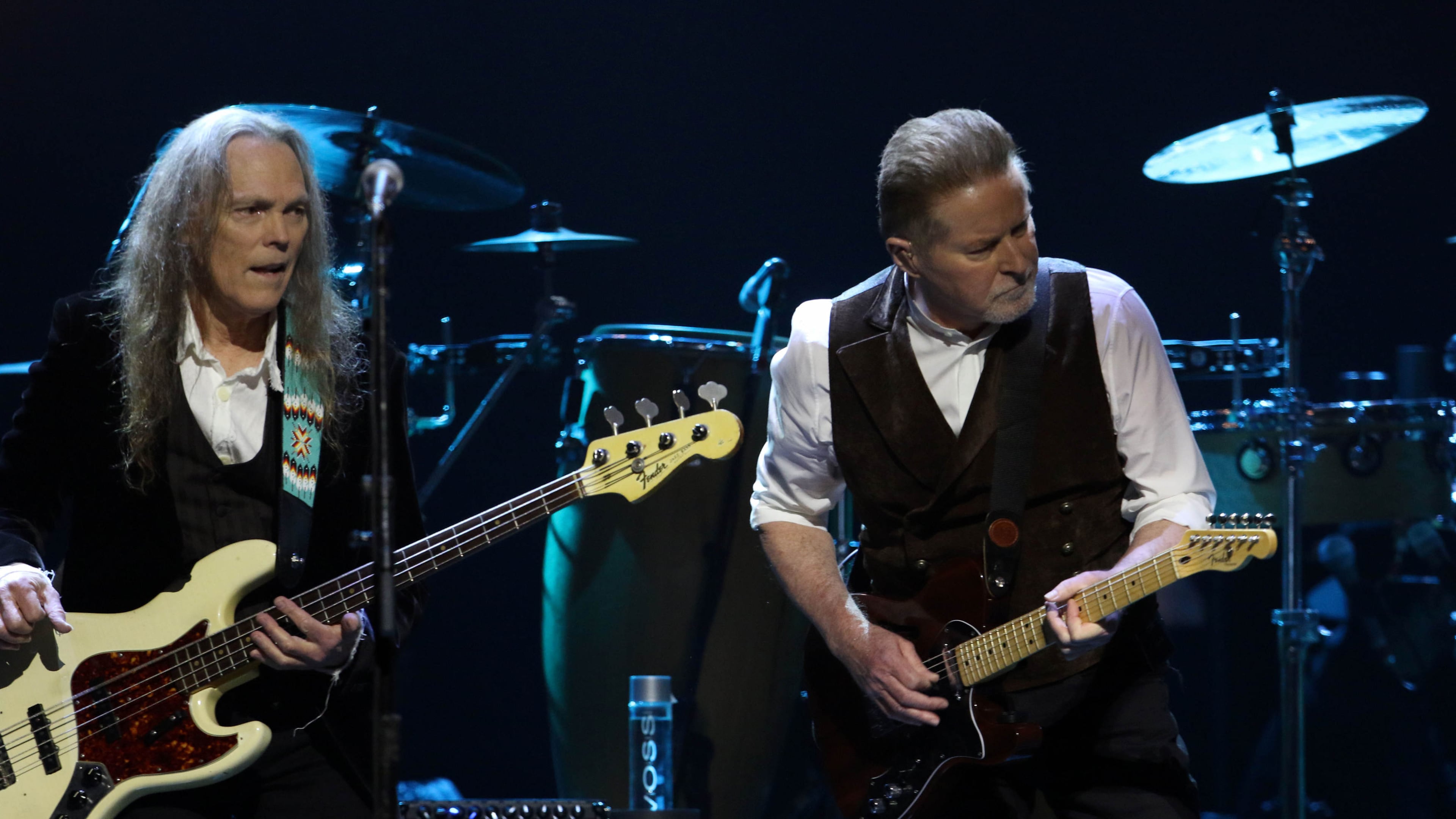The love/hate world that is the Eagles

For some, the Eagles bring a peaceful, easy feeling of nostalgia and happy times.
For others, the Eagles are a never-ending spasm in the brain, like a low-grade headache that never quite goes away.
The band, with three members from its 1970s heyday still part of the group (O.G. Don Henley and later arrivals Joe Walsh and Timothy B. Schmit), is coming back to Atlanta for two State Farm Arena dates Nov. 2 and 4.
It’s only been 20 months since the band’s last visit to the arena, but both shows are sold out. Ticketmaster as of Monday has resale tickets starting at a whopping $225 before fees.
The tour, which began last month, is dubbed “The Long Goodbye.” Indeed, the band said in a press release that the tour will last at least through 2025.
Here are points and counterpoints regarding the perpetual love/hate attitudes about the band.

Point: The Eagles crafted hit songs in the 1970s, a flavorful blend of rock, country and pop and lovely harmonies that stands the test of time, from “Lyin’ Eyes” to “Take It To The Limit.” “They’re incredibly talented,” said Peter Conlon, long-time Atlanta concert promoter. “They’ve written wonderful songs that people associate with certain periods of their life, songs that remind them of prom or a football game or a date.”
Counterpoint: Familiarity breeds contempt. Their overplayed songs have become at best, background noise, and at worst, an easy excuse to change the radio dial every time “The Long Run” or “Desperado” comes on. “We burned the living hell out of the Eagles” on the radio, said Scott Woodside, who as a jock played their hits when they were on the top 40 charts in the 1970s on Atlanta’s Z93 and later, when Z93 became a classic rock station in the 1990s.

Point: Fans have purchased more than 150 million of their albums worldwide. They were inducted into the Rock and Roll Hall of Fame in 1998, the band’s first year of eligibility. Their “Greatest Hits (1971-1975)” album has sold more than 38 million copies in the United States alone, the most of any single album in rock history, according to the Recording Industry Association of America.
Counterpoint: Popularity doesn’t equal quality. And critics didn’t always embrace them. “Hating the Eagles defines whether a music fan is a fan of music or just a bandwagon-jumper,” wrote Gertz Kuntzman of The New York Daily News after Glenn Frey’s death in 2016. Stephen Deusner, in a 2013 Salon essay dubbed “Quit defending the Eagles! They’re simply terrible,” complained that “they come off as deadly serious, with no sense of humor about anything, least of all themselves.”
Point: “Hotel California” is a signature song for the ages capturing the indulgences of 1970s hedonism and destruction. “It’s one of the greatest rock compositions ever,” said Steve Craig, who played the song many times as a radio jock on 97.1/The River. “There is some great guitar solo work in there. And there’s the famous dueling guitars between Joe Walsh and Don Felder going back and forth which is just insane. It rivals anything the Allman Brothers or Lynyrd Skynyrd could do.” Steve Mitchell, who played the Eagles on Atlanta’s former 96rock in the 1970s and 1980s, called that song an example of the Eagles’ experimentation at the time: “It’s totally California and everybody dug it at the time. It still has a great vibe.”
Counterpoint: It’s self-serving pap that drags on way too long. “It’s kind of a ridiculous meaningless song,” said Jeff Clark, who ran the eclectic Atlanta music fan magazine Stomp and Stammer for 25 years. “It doesn’t say anything to me. It isn’t even catchy. It’s dull and plodding.”

Point: The Eagles boast a catalog, musicality and sophistication that draws willing fans to spend hundreds of dollars per ticket to see them again and again without blinking. The set lists typically mix solo hits from the individual members of the band with Eagles staples. “They only play the hits,” said Rick Diamond, a veteran Atlanta photographer who shot the Eagles “The Long Run” tour in 1979. “And they hit all the generations. You look at the audience. There are plenty of people my age. I’m almost 70. Then you see kids 13, 14 years old.”
Counterpoint: They are greedy rockers who will suck every dime from the teats of their fan base. “The Eagles were truly the first kind of corporate rock band,” Clark said. “The 1970s were when rock and roll became big business and they embraced it. They continue to embrace it.”

Point: Don Henley is a brilliant songwriter and musician. “He is the person in the band who makes sure they didn’t miss a note,” Craig said. “He’s always been meticulous. I’d call him the glue of the band.”
Counterpoint: Don Henley is an arrogant, cocky jerk. “He’s one of those total West Coast elitist rich snobs,” Clark said. “I can’t stand him.”
Point: Stoners embrace the Eagles, who also embraced cannabis. The use of weed impacted the band’s early work including “Take It Easy.” And it’s referenced directly in the lyrics of ‘Hotel California” as “colitas.”
Counterpoint: Stoners can’t take the Eagles. This may have been solidified by 1998′s film “The Big Lebowski” where Jeff Bridges’ perpetually stoned character the Dude hears “Peaceful Easy Feeling” in a taxi and loses his mind. “It may depend on which gummy you’re taking,” cracked Craig.


